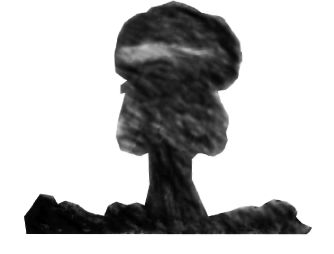The narrative essay
The narrative essay is a formal version of something that has been used between humans since people first talked to each other. People have been telling each other stories for ever, and have been writing stories down for many thousands of years. Stories are a form of entertainment. They can carry a message or a moral, but don’t have to. They are a way of learning. A good story can make just about any topic interesting.
A narrative essay has a slightly more specific purpose than just any old story. In a narrative essay you are generally trying to make a point of some kind. However, most narrative essays don’t have an explicit thesis statement. Instead, the point that you’re trying to make to the reader is gradually communicated to them as they progress through your essay. The reader is never told what your point is directly - they’re supposed to get the point through reading your essay.
The point you are trying to make can be anything. Some stories are told to try to make some sort of comment on politics or society. Sometimes the point is very specific; for instance, a story about a dolphin that chokes on a helium balloon might be making the point that the helium balloons that are released at events can eventually hurt animals. Or the point could be very general - for an uplifting story about a legless person climbing mountains, the point might just be that the human spirit is a wonderful thing. This would be an inspirational story. Fables are short stories that make a moral point to the reader.
For instance, there is a famous fable reputedly by a Greek slave called Aesop about a grasshopper and an ant:
One day an ant was working hard to drag some food back to its nest. It was hard work. A grasshopper nearby called out to him, "Why do you work so hard ant? Why not come and play?" To this, the ant replied, "I am saving up supplies so that we may survive the winter. The grasshopper thought this was foolishness and said, "But it is warm now and food is plentiful!" However, the ant was not convinced and continued its hard work, dragging the food back to the nest.
By the time winter came the ant and his companions had stored up enough food to last them through the hard months. However, the grasshopper had frittered away the summer months and stored no food. When at last the grasshopper begged the ant for some food, the ant replied, "You may dance in the winter to the tune that you sang all summer".
The main point of this fable is fairly easy to work out - it tells the reader that those who take the time to prepare for hard times will be able to survive them, but those who do not prepare properly will be in trouble. However, there is also a second point or issue to be taken from the fable. Are people who have spent the time and effort to prepare for hard times obliged to help out those who haven’t, even after warning them repeatedly?
There are certain groups around the world known as survivalist groups that prepare for surviving through doomsday type events, such as a world nuclear war. This question is a very important one for these groups - they will only have a limited amount of food and medicine to get them through the years after such an event occurs. Many of them take the view that there is no obligation for them to help people who have ignored their warnings. They use the example of Aesop’s fable about the ant and the grasshopper to illustrate their views.

Click here to move on to the next topic: Writing from your personal experiences